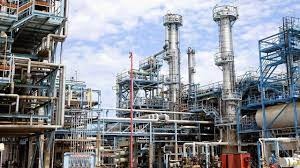Nigeria’s top crude grades, including Bonny Light, Forcados, and Brass, are facing difficulty attracting buyers from Europe, China, and India. Traders are opting for a blend of WTI (the primary oil benchmark for North America) and Brazilian grades as a cost-cutting measure, substituting the highly sought-after sweet crude from Nigeria.
Renowned for their low sulfur content, the Nigerian crude grades have been favored by refineries in Europe and Asia. However, the relatively high prices of Nigerian cargoes have prompted traders to shift their attention to the Urals crude blend, resulting in a lack of demand for Nigerian barrels, according to S&P Global Commodity Insights.
This shift has led to Nigeria’s premium grade Bonny Light being offered at a 50 cents per barrel discount to Dated Brent on June 6th.
“West Africa is losing out to alternatives in Europe – WTI, Midland, and Brazilian grades have consistently offered lower differentials, and sellers of Nigerian barrels are struggling to find demand in Europe,” stated a source quoted by the research house.
This development adds to Nigeria’s existing challenges, as the country experienced a significant decline in output last year, reaching a multi-decade low of below 1 million barrels per day. Nigeria has also been grappling with rampant incidents of oil theft in the southern region, which has cost the government an estimated $1 billion in revenue in the first quarter of this year.
The current production level represents less than half of Nigeria’s daily capacity of 2.2 million barrels. Furthermore, African crude grades are finding it difficult to compete with Urals crude in Asia due to a price ceiling imposed on Russian oil following the conflict with Ukraine, making the Russian grade more affordable.
“I don’t think Nigeria can sustain competition with WTI Midland mixed with Brazil. It’s been a long time since we have seen Europe able to absorb Nigerian exports,” commented a source to S&P Global Commodity Insights.
These challenges pose an early setback to the plans of newly-inaugurated President Bola Tinubu, who aimed to increase production and boost oil earnings. Nigeria is currently utilizing almost all of its earnings to service debt. President Tinubu had promised in his manifesto to raise Nigeria’s daily output to 2.6 million barrels by 2027 and 4 million barrels by 2030.
However, in April, Nigeria’s production, including condensate, fell by 17.8% to 1.25 million barrels per day.
“Nigerian producers will need to lower prices to remain competitive,” stated Uwadiae Osadiaye, a chartered financial analyst with Lagos-based FBNQuest.










